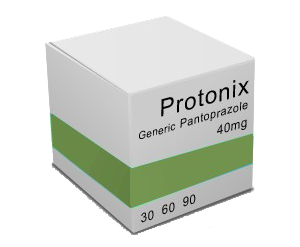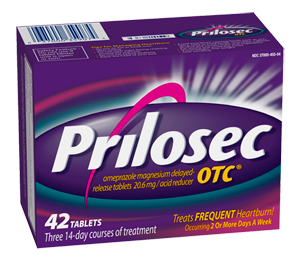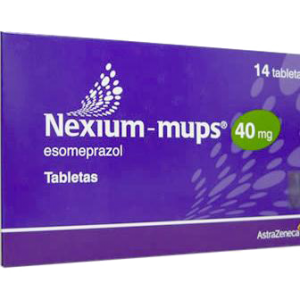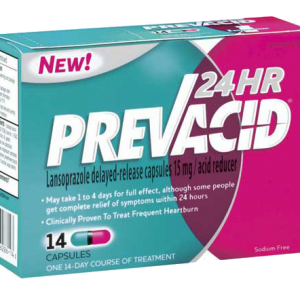What is Aciphex?
Aciphex (rabeprazole) is a proton pump inhibitor that decreases the amount of acid produced in the stomach.
Aciphex is used to treat symptoms of gastroesophageal reflux disease (GERD) in adults and children who are at least 1 year old.
Aciphex is used only in adults to treat conditions involving excessive stomach acid, such as Zollinger-Ellison syndrome. It is also used to promote healing of erosive esophagitis (damage to your esophagus caused by stomach acid).
Aciphex may also be given with an antibiotic to prevent gastric ulcer caused by infection with helicobacter pylori (H. pylori).
This medicine is not for immediate relief of heartburn symptoms.
Important information
You should not use Aciphex if you are allergic to rabeprazole or to similar medicines such as lansoprazole (Prevacid), esomeprazole (Nexium), omeprazole (Prilosec, Zegerid), or pantoprazole (Protonix). Aciphex is not for immediate relief of heartburn symptoms.
Heartburn is often confused with the first symptoms of a heart attack. Seek emergency medical attention if you have chest pain or heavy feeling, pain spreading to the arm or shoulder, nausea, sweating, and a general ill feeling.
Some conditions are treated with a combination of Aciphex and antibiotics. Use all medications as directed by your doctor. Read the medication guide or patient instructions provided with each medication. Do not change your doses or medication schedule without your doctor’s advice.
Take Aciphex for the full prescribed length of time. Your symptoms may improve before the infection is completely cleared.
Follow all directions on your medicine label and package. Tell each of your healthcare providers about all your medical conditions, allergies, and all medicines you use.
Before taking this medicine
Heartburn is often confused with the first symptoms of a heart attack. Seek emergency medical attention if you have chest pain or heavy feeling, pain spreading to the jaw or shoulder, nausea, sweating, and a general ill feeling.
You should not use Aciphex if you are allergic to rabeprazole or to similar medicines such as lansoprazole (Prevacid), esomeprazole (Nexium), omeprazole (Prilosec, Zegerid), or pantoprazole (Protonix).
To make sure Aciphex is safe for you, tell your doctor if you have:
severe liver disease;
osteoporosis;
low bone mineral density (osteopenia); or
low levels of magnesium in your blood.
Taking a proton pump inhibitor such as Aciphex may increase your risk of bone fracture in the hip, wrist, or spine. This effect has occurred mostly in people who have taken the medicine long term or at high doses, and in those who are age 50 and older. It is not clear whether Aciphex is the actual cause of an increased risk of fracture.
Aciphex is not expected to harm an unborn baby. Tell your doctor if you are pregnant or plan to become pregnant while using this medicine.
It is not known whether rabeprazole passes into breast milk or if it could harm a nursing baby. Tell your doctor if you are breast-feeding a baby.
Do not give this medicine to a child without medical advice.
How should I take Aciphex?
Aciphex is usually taken once per day. Follow all directions on your prescription label. Do not take this medicine in larger or smaller amounts or for longer than recommended.
Aciphex is usually given for 4 to 8 weeks only. Your doctor may recommend a second course of treatment if you need additional healing time.
When treating H. pylori infection, rabeprazole may be needed for only 7 days. Follow your doctor’s instructions.
Take this medicine with a full glass of water.
Aciphex tablets may be taken with or without food. The delayed-release capsules should be taken 30 minutes before a meal.
Do not crush, break, or chew the tablet. Swallow it whole.
To take delayed-release Aciphex Sprinkle, open the capsule and sprinkle the medicine into a spoonful of soft food such as applesauce, yogurt, or baby food made from fruit or vegetable. You may also mix the medicine with apple juice, Pedialyte, or infant formula. Swallow right away without chewing. Do not save the mixture for later use; it will go bad after 15 minutes.
Some conditions are treated with a combination of Aciphex and antibiotics. Use all medications as directed by your doctor. Read all patient information, medication guides, and instruction sheets provided to you. Ask your doctor or pharmacist if you have any questions.
Do not change your doses or medication schedule without your doctor’s advice.
Take your medicine for the full prescribed length of time. Your symptoms may improve before your condition is completely cleared.
Call your doctor if your symptoms do not improve, or if they get worse while using Aciphex.
If you use this medicine for longer than 3 years, you could develop a vitamin B-12 deficiency. Talk to your doctor about how to manage this condition if you develop it.
Store at room temperature away from moisture and heat.
What happens if I miss a dose?
Take the missed dose as soon as you remember. Skip the missed dose if it is almost time for your next scheduled dose. Do not take extra medicine to make up the missed dose.
What happens if I overdose?
Seek emergency medical attention.
What should I avoid while taking Aciphex?
This medicine can cause diarrhea, which may be a sign of a new infection. If you have diarrhea that is watery or bloody, call your doctor. Do not use anti-diarrhea medicine unless your doctor tells you to.
Aciphex side effects
Get emergency medical help if you have signs of an allergic reaction to Aciphex: hives; difficulty breathing; swelling of your face, lips, tongue, or throat.
Stop using Aciphex and call your doctor at once if you have symptoms of low magnesium such as:
severe stomach pain, diarrhea that is watery or bloody;
seizure (convulsions);
kidney problems – urinating more or less than usual, blood in your urine, swelling, rapid weight gain; or
symptoms of low magnesium – dizziness, confusion; fast or uneven heart rate; tremors (shaking) or jerking muscle movements; feeling jittery; muscle cramps, muscle spasms in your hands and feet; cough or choking feeling.
Common Aciphex side effects may include:
headache;
pain;
sore throat;
stomach pain, gas;
diarrhea, constipation; or
signs of infection (fever, chills, flu symptoms).
This is not a complete list of side effects and others may occur. Call your doctor for medical advice about side effects.
What other drugs will affect Aciphex?
Tell your doctor about all medicines you use, and those you start or stop using during your treatment with Aciphex, especially:
amoxicillin;
atazanavir;
clarithromycin;
cyclosporine;
diazepam (Valium);
digoxin, digitalis;
a diuretic (water pill);
ketoconazole;
methotrexate;
mycophenolate mofetil;
phenytoin;
theophylline; or
warfarin (Coumadin, Jantoven).
This list is not complete. Other drugs may interact with rabeprazole, including prescription and over-the-counter medicines, vitamins, and herbal products. Not all possible interactions are listed in this medication guide.




